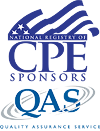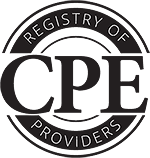One of the ways to perform a more effective and efficient audit is to maximize the use of substantive analytic procedures in the detailed audit plan. This module will provide the tips and best practice techniques for strengthening substantive analytic procedures in order to reduce over-reliance on tests of details.
Major Topics:
- How analytic procedures enhance audit quality
- Elements of strong analytic procedures
- Selecting the proper analytic, and altering the strength for the intended purpose
- Disaggregating data to make more informed expectations
- Evaluating the data used in generating expectations, including corroborating inquiry
- Improving documentation, including evaluating sufficiency and appropriateness of the audit evidence obtained
- Resolving significant differences resulting from analytic procedures and concluding on audit results
Prerequisites
No advanced preparation or prerequisites are required for this course.
Designed For: Accountants responsible for strengthening analytic procedures for a more effective and efficient audit.
Learning Objective
- Discover and learn how analytic procedures can enhance audit quality.
- Explore and explain elements of strong analytic procedures that can eliminate or mitigate the need for extensive tests of details.
- Identify and describe tips for improving documentation of the design, documentation and evaluation of substantive analytic procedures.
- Discover and discuss factors impacting the development of expectations and evaluation of results of substantive analytic procedures.
Last updated/reviewed: July 12, 2025
(1) Reviews
(45 rating)carajones
last question on final exam appears to be incorrect on answer key
Lesson Questions and Answers (0 Questions)
There are no questions.
Answers to Frequently Asked Questions (FAQs)


